Mi Vater isch a Chaaser Gsii (My Father was a Cheesemaker)
Details
Description
SKU: SY.MTN-029
Composed by Mark Templeton. Choral. Choral score. Duration 2 minutes, 25 seconds. Published by Mark Templeton Choral Music (SY.MTN-029).8.5" x 11" inches.
Mi Vater isch a Chaaser Gsii is a yodeling love song from the Amish communities in Adams County, Indiana. The Pennsylvania Dutch speaking Amish of Ohio and Pennsylvania generally do not yodel, and do not speak the same language as their Indiana brethren. The Amish from Indiana migrated from Switzerland during the eighteenth and nineteenth centuries, and aptly speak a Bernese dialect of Swiss German. These Swiss Amish have retained many yodel songs from the 'old world' through an oral tradition. Mi Vater isch a Chaaser Gsii is unique to the Swiss Amish and cannot be found in any collection of Swiss folk songs, or in the Swiss Folk Song Archive in Basel. This song incorporates the singing technique called yodeling. This is when a singer abruptly and rapidly changes between the head register (or falsetto voice) and the chest register (or speaking voice). The passaggio is the Italian term for the break area between these two registers. Trained choral singers are usually taught to sing through the passaggio without any noticeable glitch in the voice, but yodeling encourages the singer to manipulate the passaggio by abruptly and noticeably switching back and forth from the different registers. Yodeling is a great way to teach the difference between the two registers, and it will also give the singers an opportunity to sing in a different and fun way. Each verse of the song should be sung using proper choral technique (singing smoothly through the passaggio). The yodeling will be indicated by arrows pointing down or arrows pointing up. The arrows pointing down indicate to abruptly switch to the chest register while the arrows pointing up indicate to switch abruptly to the head register. The arrows point to the precise note where the change should occur. This abrupt switching of registers creates the yodel effect. Your choir will enjoy singing this upbeat song!
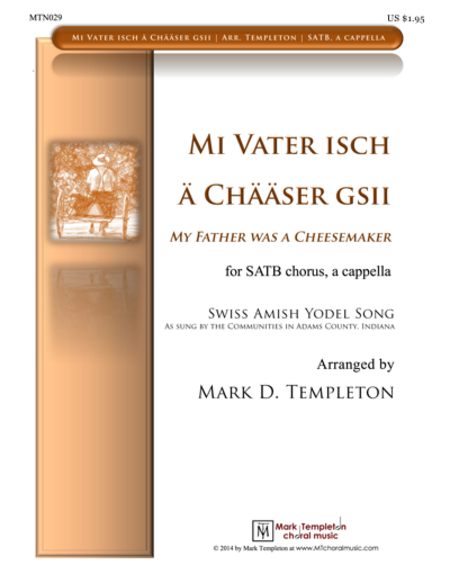
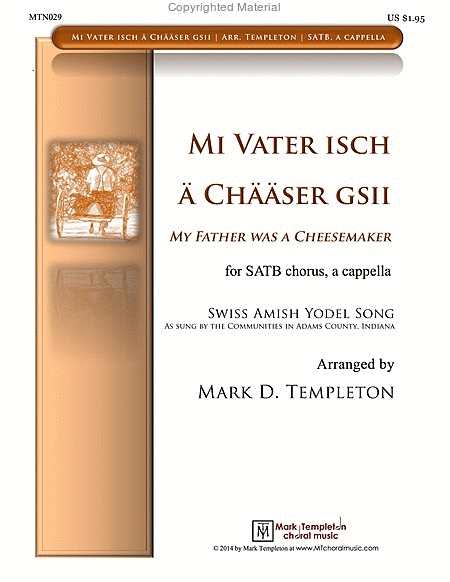
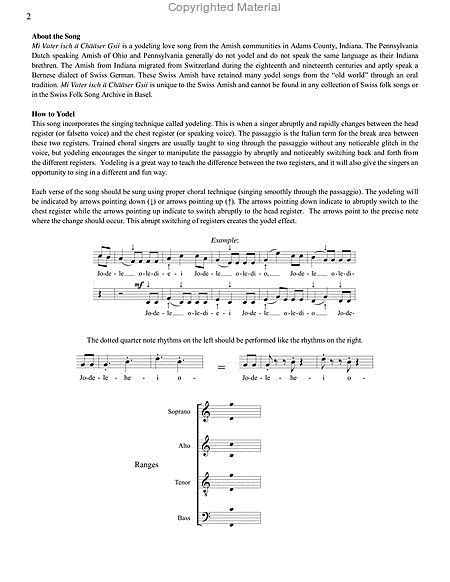
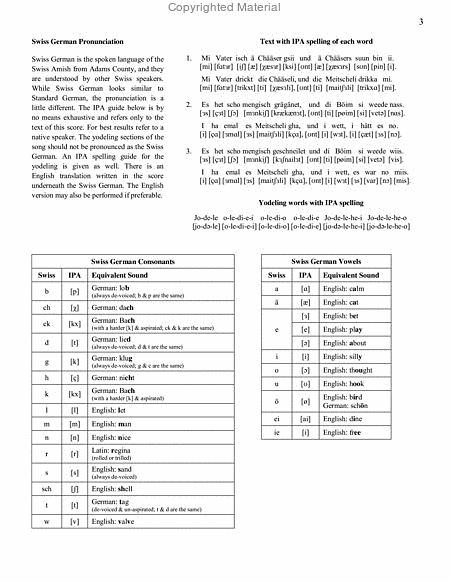
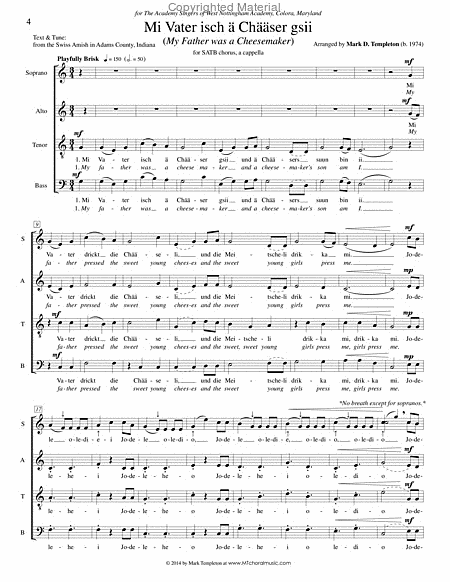
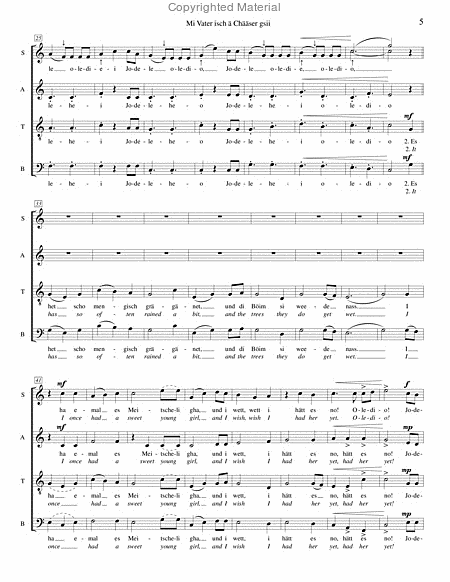
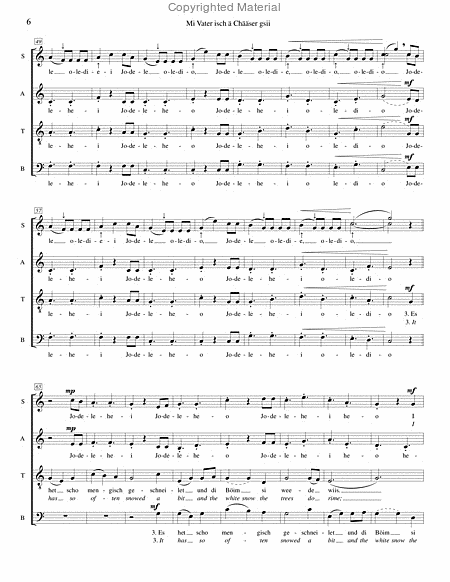
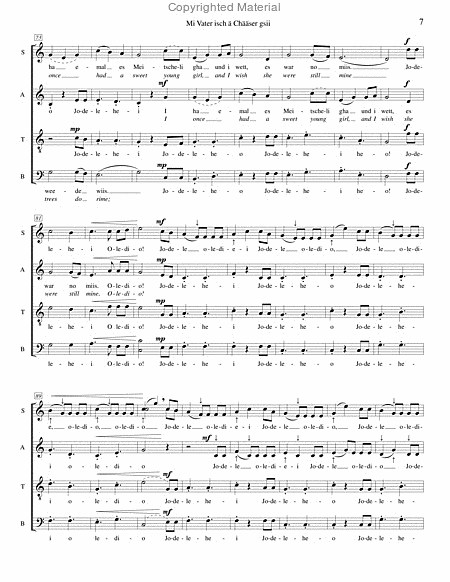
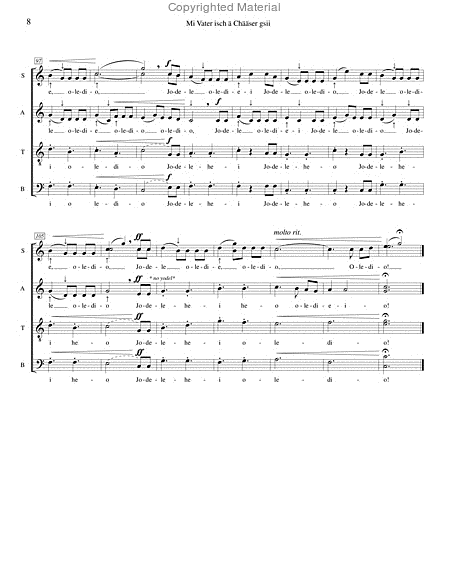
 Share
Share